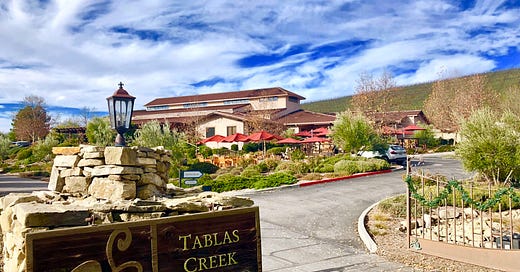Randall Grahm’s dream was to make Burgundy in California. Sadly the pinot noir and chardonnay he planted in 1975 produced indifferent wine so he bought some grenache and was delighted by the results. This set him down the path that he has followed ever since as the most prominent of the Rhone Rangers and, in the words of novelist Lawrence Osborne, “the Puck of the American branch Vinimundo”, bringing mischief to an often pompous business.
The Rhone Rangers were a group of American winemakers who began in the 1980s such as the late Sean Thackrey, Bob Lindquist, John Alban and, of course, Grahm. Rather than work with cabernet and chardonnay like the vast majority of the state’s ambitious winemakers, they were inspired by the Rhone valley in France.
Kermit Lynch’s shop in Berkeley, California acted like an unofficial clubhouse for the movement. He opened it in 1972 and, alongside the best of Bordeaux and Burgundy, introduced California to the wines of Southern France. Names that have now become legendary like Chave in Hermitage, Clape in Cornas, Vieux Telegraph in Châteauneuf-du-Pape and Domaine Tempier in Bandol. These provided the template to an select group of winemakers for how they could do things differently.
For many, necessity was the mother of invention. The Rhone Rangers wanted to make wine but didn’t have the money to plant fashionable varieties in places like Napa. Like California Wombles, they made good use of what they could find. At the time California had large quantities of Rhone varieties like grenache, mourvèdre (known as mataro), carignan (spelt carignane for some reason) and petite sirah (which is known as durif in France). These grapes had gone into things like Gallo’s Hearty Burgundy that had been the state's staple following Prohibition. But they were being pushed out by more glamorous interlopers so the Rangers had to be quick on the draw.
Keep reading with a 7-day free trial
Subscribe to Drinking Culture to keep reading this post and get 7 days of free access to the full post archives.



